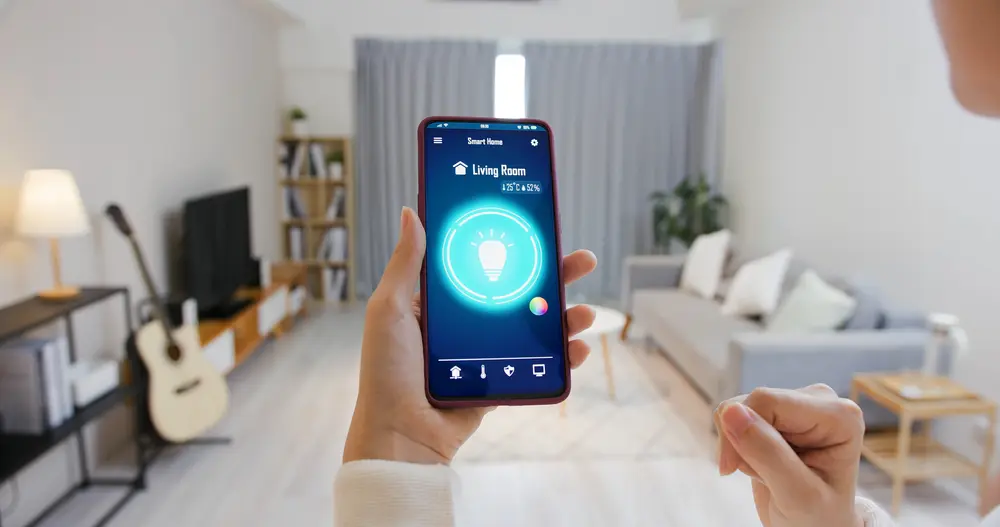
Smart home integration for HVAC systems and energy efficiency
In today’s rapidly evolving world of technology, the concept of a smart home is becoming increasingly popular. One of the most significant advancements in this field is the smart home integration for HVAC systems. This integration not only enhances comfort but also significantly boosts energy efficiency, which is a vital consideration for homeowners aiming to reduce their carbon footprint and lower utility bills.

What is Smart Home Integration?
Before delving into the specifics of HVAC systems, it is crucial to understand what smart home integration entails. In essence, it refers to the ability to control various home appliances and systems from a central hub or application. This can include lighting, security systems, and, notably, HVAC systems. Learn more about home automation.
Benefits of Integrating HVAC Systems
The integration of HVAC systems into a smart home setup brings numerous benefits. Firstly, it allows for remote control of heating and cooling systems, enabling homeowners to adjust temperatures from anywhere. This is particularly useful for those with unpredictable schedules. Moreover, smart systems can learn your preferences and adjust settings automatically, enhancing comfort and convenience.
Energy Savings
One of the primary advantages of smart home integration for HVAC systems is the potential for energy savings. By optimizing the operation of heating and cooling systems, homeowners can significantly reduce energy consumption. Features such as smart thermostats can adjust temperatures based on occupancy, ensuring that energy is not wasted heating or cooling empty spaces.
According to a study conducted by Nice For You, homeowners can save up to 10-15% on heating and cooling costs by integrating smart technology into their HVAC systems.
Improved Air Quality
Beyond energy savings, integrating HVAC systems with smart technology can also improve indoor air quality. Smart systems can monitor air quality and humidity levels, adjusting settings to maintain a healthy and comfortable environment. This is especially beneficial for individuals with allergies or respiratory conditions.
Components of a Smart HVAC System
Understanding the components of a smart HVAC system is essential for those considering integration. Key components include:
Smart Thermostats
Smart thermostats are the cornerstone of any integrated HVAC system. These devices allow users to control temperatures remotely and can learn user preferences over time.
Sensors
Sensors play a crucial role in monitoring various aspects of indoor climate, including temperature, humidity, and air quality. These sensors provide data that the system uses to optimize performance.
Central Control Hub
The central control hub acts as the brain of the smart home setup, allowing homeowners to manage all integrated systems from a single interface. This can be a standalone device or an app on a smartphone or tablet.
Challenges and Considerations
While the benefits are significant, there are also challenges and considerations to keep in mind when integrating HVAC systems into a smart home. These include:
Compatibility
Not all HVAC systems are compatible with smart technology. Homeowners may need to upgrade their existing systems or invest in compatible components.
Security
With increased connectivity comes the risk of security breaches. Ensuring a secure network and utilizing robust security measures is essential. For more details, check out our article on smart home network security.
Initial Costs
The initial cost of integrating smart technology can be high, but the long-term savings and benefits often justify the investment.
Future Trends in Smart HVAC Systems
The future of smart HVAC systems is promising, with continuous advancements in technology. Trends to watch include increased use of artificial intelligence and machine learning to further optimize system performance. For a deeper dive into AI’s role in smart homes, see our post on AI in smart home systems.
NFC Technology
Near Field Communication (NFC) technology is another emerging trend, offering new ways to interact with and control smart home devices. Learn more about NFC in smart homes.
Conclusion
The integration of HVAC systems into a smart home setup offers numerous benefits, from enhanced comfort and convenience to significant energy savings. While there are challenges to consider, the long-term advantages make it a worthwhile investment for homeowners seeking to create a more efficient and sustainable living environment.

FAQs
What is a smart HVAC system?
A smart HVAC system is an integrated heating, ventilation, and air conditioning system controlled via a central hub or app, allowing for remote operation and enhanced energy efficiency.
How much can I save with a smart HVAC system?
Homeowners can save up to 10-15% on heating and cooling costs by integrating a smart HVAC system, according to industry studies.
Are smart HVAC systems secure?
While smart systems offer enhanced convenience, they also require robust security measures to protect against potential breaches. Ensuring a secure network and using strong passwords is essential.
This article contains affiliate links. We may earn a commission at no extra cost to you.